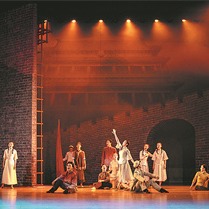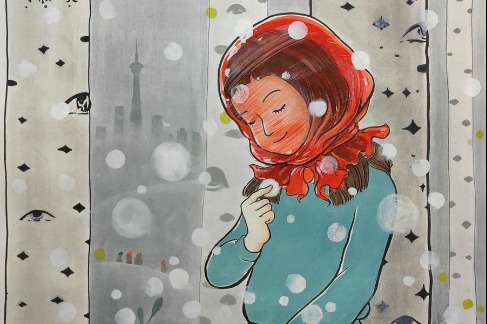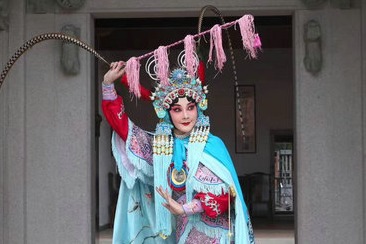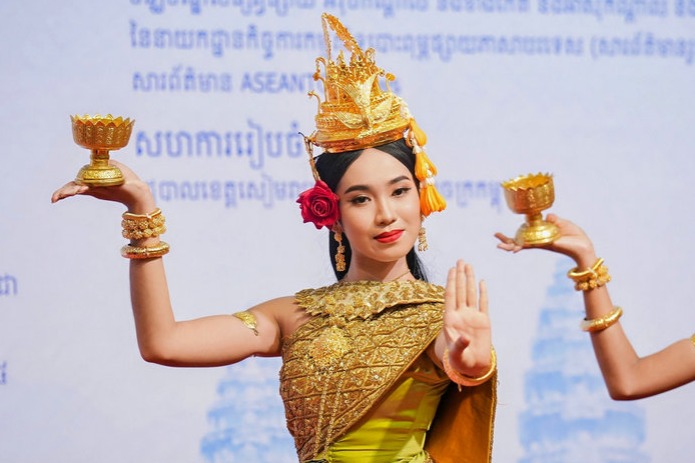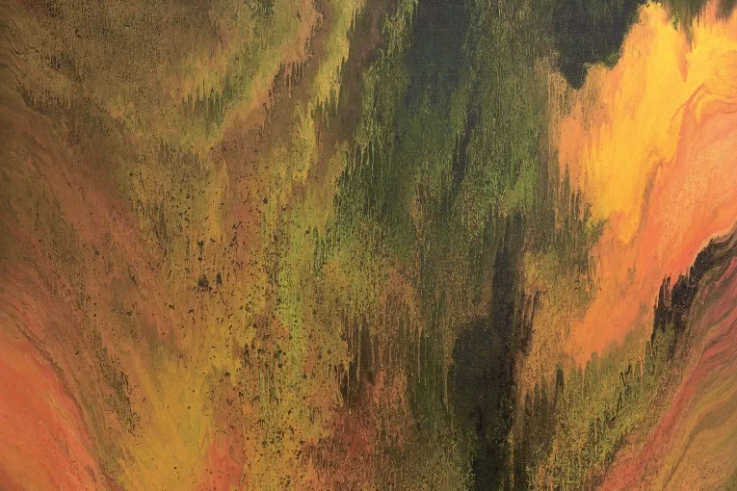Historical dance drama prepares students for the future

The theater lights had yet to dim when a male dancer wearing traditional Chinese clothes from the Qing Dynasty (1644-1911) appeared among the audience, bowing respectfully and immersing them in the era.
As the lights gradually dimmed, the dancer took to the stage, flying a paper kite against the backdrop of an image of Zhengyang Gate, or Qianmen, which fully filled the back of the stage set.
That's the beginning scene of the original Chinese dance drama Weiwei Zhengyang, or Zhengyang Gate, which premiered at the theater of the Beijing Dance Academy on Sunday. From Thursday to Saturday, the dance drama is being staged at Poly Theater in Beijing.
Performed by students and teachers of the Beijing Dance Academy, the dance drama reveals a tale spanning five generations of a family, witnessing the rise and fall of the era, from the late Qing Dynasty to present day. Key periods in history, such as the decline of the Qing Dynasty, the invasion by foreign armies, the rule of the Kuomintang in the early 20th century, and the founding of the People's Republic of China in 1949, are portrayed in the production.
"When people walk on the pedestrian street of the Qianmen area, they have a great experience of seeing the charming traditional architecture, vibrant atmosphere, and many shops, restaurants and attractions. It's a must-see area in Beijing for tourists. With the dance drama, we want to present the history of Zhengyang Gate, which is connected to the people, the city and the country," says Shuai Xiaojun, director of the dance drama, who is also an associate professor of the Creative School of the Beijing Dance Academy.
He says that since the dance drama covers different periods of time, dance styles from classic Chinese to contemporary are featured in the production.


